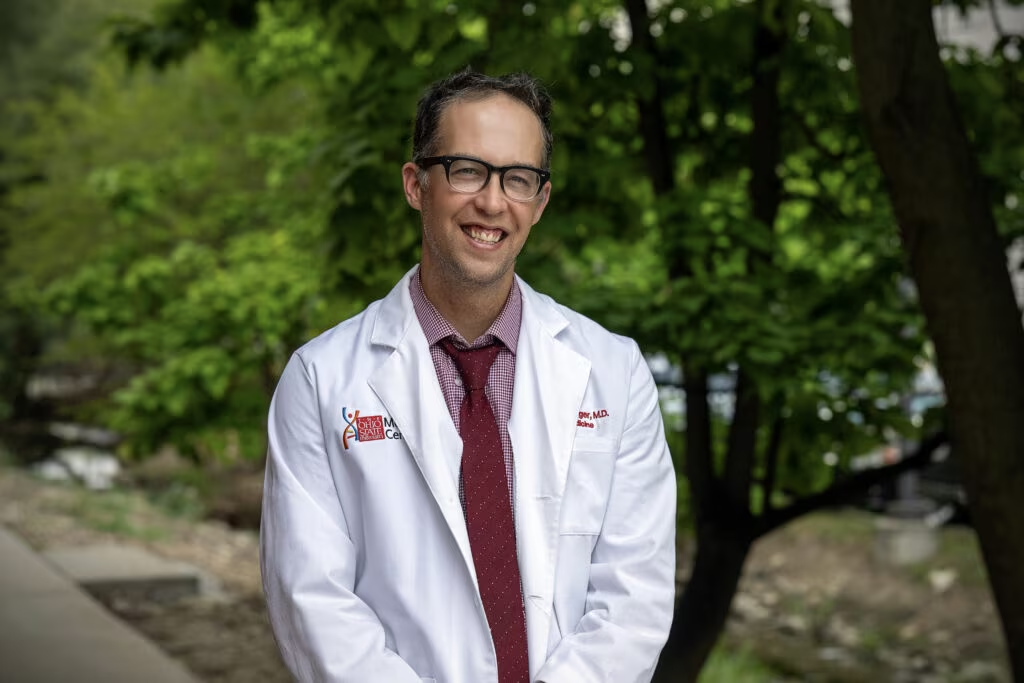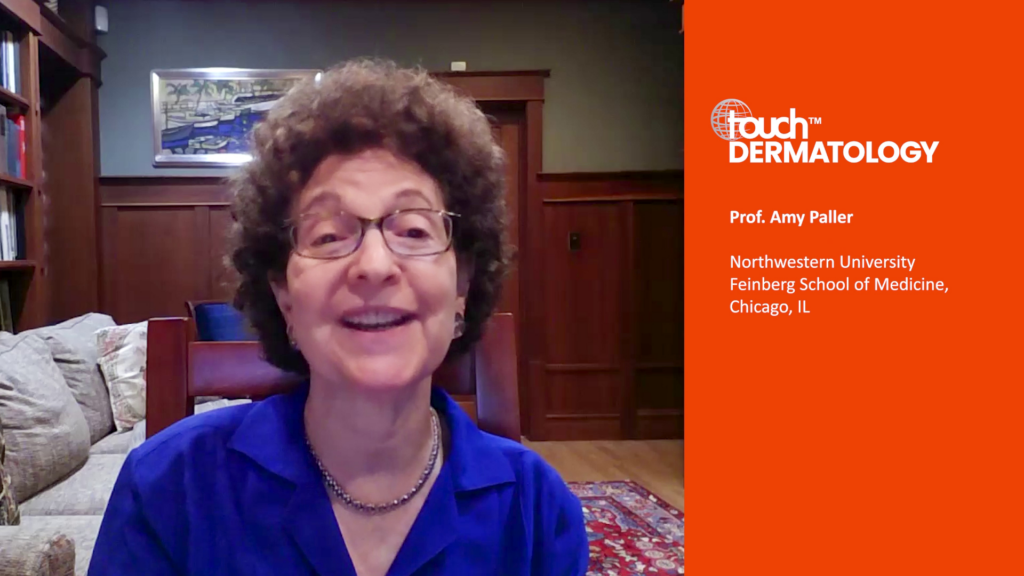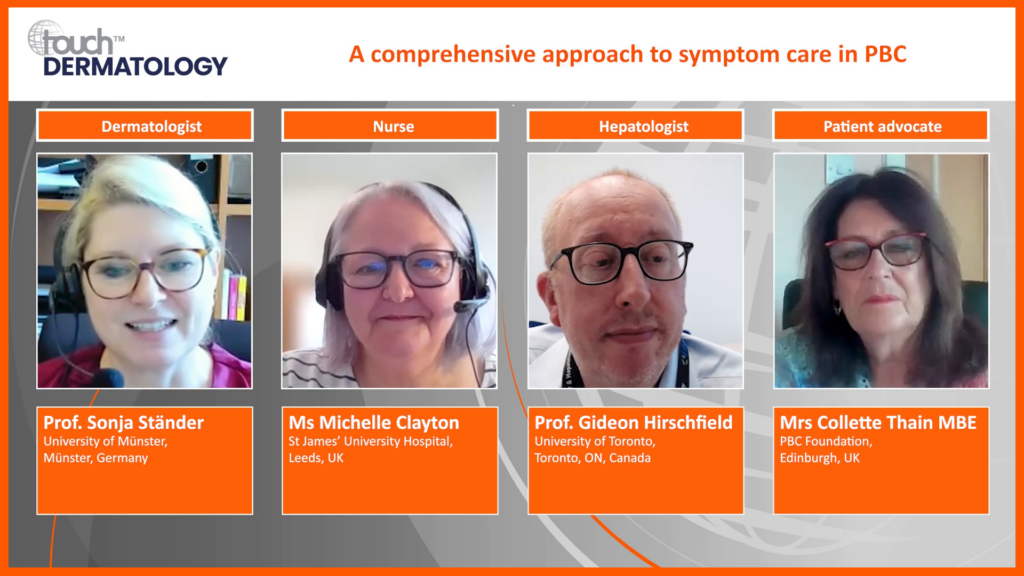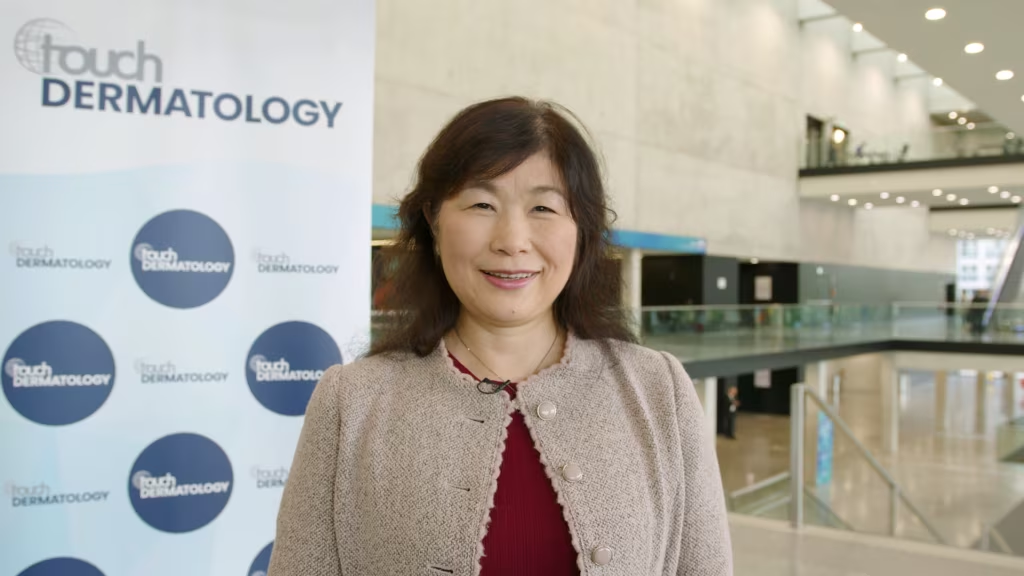Rare Diseases
An Introduction to Rare diseases
Many challenges are associated with the diagnosis and management of rare diseases, with limited therapeutic options, consensus guidelines and patient databases available, difficulties in clinical trial recruitment also hinders advancements in treatment paradigms. Over 1000 rare skin diseases have been identified, many of genetic origin developing in childhood and continuing through the patients life, including Epidermolysis Bullosa and Hailey Hailey Disease. Further research is crucial to identify therapeutics targeting the underlying cause of these conditions.
Our supporting partners do not constitute an endorsement of the content on this page.

This year, we are celebrating our inaugural touchDERMATOLOGY Future Leaders to recognize the outstanding talent that has entered our field in recent years. These individuals are set to innovate and transform dermatology in the years to come. Representing a diverse range of expertise from across the globe, these highly accomplished clinicians are among the brightest minds shaping the future of dermatology. We had the pleasure of learning about their unique career journeys, motivations, and the inspirations that have guided their paths. They also shared their perspectives on the most exciting developments in dermatology today, along with their hopes for the future of the field. Congratulations to all our touchDERMATOLOGY Future Leaders, and thank you for sharing your stories, insights and ambitions with us.

Dr Niraj Parajuli shares his journey into dermatology, from early motivations to his current work in neglected tropical diseases, rare skin conditions, and digital dermatology. Discover how his global leadership and commitment to health equity are shaping the future of the field.

From an unexpected start to becoming a dual specialist in dermatology and dermatopathology, Dr Jonathan Ho is helping redefine skin health in the Caribbean. Based in Kingston, Jamaica, he’s combining clinical care, research, and education to improve outcomes for patients with autoimmune, malignant and complex skin conditions. In this Future Leader 2025 Q&A, Dr Ho shares the pivotal moments that shaped his career, his passion for mentorship, and how he’s building a meaningful path in academic dermatology.

Dr Antoni Gostyński is advancing the field of dermatology through his work on innovative diagnostic tools and therapeutic strategies. Based at Maastricht University Medical Centre, Dr Gostyński co-leads the hereditary skin diseases clinic and also practises at the Catharina Hospital in Eindhoven. His clinical and research interests centres on genodermatoses, particularly ichthyoses amd palmoplantar keratodermas (epidermal differentiation disorders), and he actively collaborates with national patient advocacy groups to support those living with these rare genetic conditions.

Physician burnout is at a critical point. In this episode, Nicky speaks with Dr Alfred Atanda about why so many physicians are burning out and what can be done to change the trend. From personal experience to system-wide solutions, Dr Atanda shares valuable insights on improving physician well-being and building a more effective healthcare culture.

We are delighted to welcome Dr Benjamin Kaffenberger, Associate Professor of Dermatology at The Ohio State University Wexner Medical Center, to the touchDERMATOLOGY Expert Faculty. A leading expert in complex skin conditions such as pyoderma gangrenosum, DRESS syndrome, and SJS/TEN, Kaffenberger brings extensive clinical and research experience in drug reactions, wound care, and hospital dermatology.

Vilobelimab, a monoclonal anti-C5a antibody, is emerging as a promising treatment for pyoderma gangrenosum (PG), a rare and chronic autoimmune skin disorder characterized by painful ulcerations. With no approved therapies in the USA or Europe, there remains a significant unmet need for effective treatment.

Pyoderma gangrenosum (PG) is a rare, painful and complex autoimmune skin condition that can present significant diagnostic and treatment challenges.1 To provide expert insights into this challenging disease, we spoke with Dr Benjamin Kaffenberger, a dermatologist at The Ohio State ...

As 2025 unfolds, the field of dermatology is set for some significant advancements. To get a glimpse of what’s ahead, we turned to our esteemed Expert Faculty members, who shared their expert insights on what they think will be the key innovations shaping this year. From the most exciting trends of 2024 that are gaining momentum to the next breakthroughs poised to redefine patient care, here’s what they had to say.

An expert in paediatric dermatology provides guidance on managing patients with epidermolysis bullosa

A multidisciplinary team and a patient advocate discuss the management of cholestatic pruritus in primary biliary cholangitis (PBC).







Recent advancements made in understanding the pathology of inflammatory skin conditions have enabled JAK inhibitors, initially developed for haematology over 20 years ago, to be investigated for dermatological use. In this episode, Dr William (Bill) Damsky discusses JAK inhibitors’ journey from proof-of-concept to treating a wide range of skin conditions, their future impact on rare diseases and the debate around safety.

In this episode, we explore the future of continuing medical education (CME) with the team behind touchIME. Hannah Fisher and Matthew Goodwin share insights into global and US trends, the importance of patient inclusivity and how educational outcomes are evolving to better measure the direct impact of learning on clinical practice and patient care.

Palmoplantar pustulosis is an uncommon chronic pustular condition affecting the palms and soles, with use of biologic therapies linked in its development. touchDERMATOLOGY were delighted to speak with Prof. Yukari Okubo (Tokyo Medical University, Tokyo, Japan) to discuss the phase 3 JUMPPP 68 week results investigating the efficacy and safety of risankizumab for the treatment of palmoplantar pustulosis in Japanese patients. The abstract ‘Efficacy and Safety of Risankizumab for the Treatment of Moderate-to-Severe Palmoplantar Pustulosis in Japanese Patients: 68-week Data From the Phase 3 JumPPP Study.' (Abstract number: 3008) was presented at EADV 2023, Berlin, 11-14 October 2023 #EADVCongress. Questions: What is known about the clinical utility of risankizumab in the treatment of palmoplantar pustulosis? What were the aims, design, and eligibility criteria for the phase 3 JUMPPP study? What were the efficacy findings of the study? Could you elaborate on the safety findings and any notable differences or similarities with other studies involving risankizumab? How do these results contribute to our understanding of the long-term effectiveness of risankizumab in the treatment of palmoplantar pustulosis, especially in the context of Japanese adults? What do you think are the next steps or areas of research that should be explored based on the outcomes of this study? Disclosures: Prof. Yukari Okubo has no actual or potential conflicts of interest in relation to this video, or in connection with the (EFPIA) HCP Code. Support: Interview and filming supported by Touch Medical Media Ltd. Interview conducted by Victoria Jones and Katey Gabrysch. Filmed in coverage of the EADV Annual Meeting. This content was developed by Touch Medical Media and is not affiliated with the European Academy of Dermatology & Venereology (EADV) or the congress.
Latest articles videos and clinical updates - straight to your inbox
Log into your Touch Account
Earn and track your CME credits on the go, save articles for later, and follow the latest congress coverage.
Register now for FREE Access
Register for free to hear about the latest expert-led education, peer-reviewed articles, conference highlights, and innovative CME activities.
Sign up with an Email
Or use a Social Account.
This Functionality is for
Members Only
Explore the latest in medical education and stay current in your field. Create a free account to track your learning.


